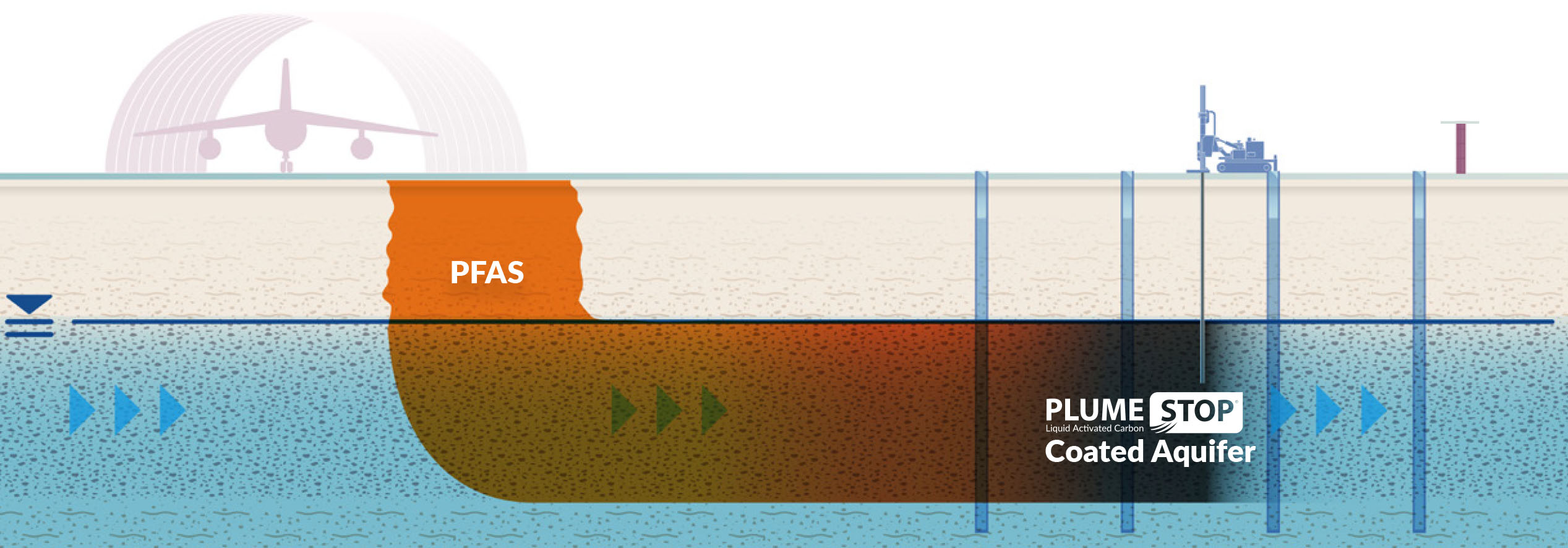Just How PFAS Therapy Makes Sure Clean and Sustainable Water
The existence of PFAS, typically known as "for life chemicals," poses significant challenges to water quality and public health. The ramifications of these treatments extend beyond immediate health benefits; they raise vital concerns regarding long-lasting water administration techniques that should be addressed to guarantee a resilient future.

Recognizing PFAS Contamination
PFAS, or per- and polyfluoroalkyl substances, have become a substantial ecological concern because of their prevalent prevalence and persistence in the atmosphere. These artificial chemicals have actually been used in numerous commercial applications and consumer products, consisting of non-stick cookware, water resistant garments, and food product packaging, due to their special residential or commercial properties such as water and grease resistance.
The contamination of dirt and water resources by PFAS takes place primarily with commercial discharges, firefighting foam use, and seeping from garbage dumps. pfas management. Once launched, these substances are resistant to degradation, bring about their build-up in the setting. This persistence increases critical issues, as PFAS can travel cross countries via groundwater and surface area water supply, affecting drinking water supplies and environments

Wellness Threats of PFAS
The determination of PFAS in the atmosphere increases considerable health and wellness issues for individuals exposed to these substances. Research has connected PFAS direct exposure to different unfavorable health effects, including immune system dysfunction, liver damages, and boosted danger of certain cancers.
The universality of PFAS in consumer products, such as non-stick pots and pans, water-repellent fabrics, and food packaging, additional enhances the threat of exposure. Drinking water contaminated with PFAS is a substantial issue, as these chemicals can leach right into groundwater resources. Susceptible populaces, including youngsters and those living near industrial websites, might deal with heightened threats because of their developing systems and possible for higher direct exposure degrees.
As understanding of these health dangers proceeds to expand, regulatory companies are starting to establish guidelines for PFAS degrees in drinking water. Public health and wellness campaigns are necessary to minimize direct exposure and safeguard neighborhoods from the lasting effects of these harmful materials.

Innovative Therapy Technologies
Exactly how can we efficiently tackle the challenges postured by PFAS contamination in water sources? Ingenious treatment modern technologies are becoming critical options in the quest for tidy water. These methods concentrate on the elimination or damage of per- and polyfluoroalkyl materials (PFAS), which are well-known for their persistence in the atmosphere.
One encouraging method is adsorption making use of sophisticated products, such as activated carbon and ion exchange materials. These products have revealed efficacy in catching PFAS particles from water. One more significant technology is membrane purification, which utilizes nanofiltration and reverse osmosis to different contaminants at the molecular level, hence providing a barrier versus PFAS.
Additionally, advanced oxidation procedures (AOPs) employ strong oxidants to damage down PFAS substances into harmless results. This method is especially effective for dealing with highly polluted water resources. Bioremediation methods, using particular microbes, are also being explored to break down PFAS.
As research proceeds, crossbreed systems that incorporate several technologies may supply enhanced efficiency, addressing the complexities of PFAS contamination. The development and execution of these ingenious treatment technologies are crucial steps towards guaranteeing the safety and security and sustainability of our water resources.
Advantages of Reliable PFAS Therapy
Effectively dealing with PFAS contamination in water resources dramatically boosts public health and environmental security. PFAS, often referred to as "forever chemicals," are resistant to deterioration and can gather in the human body, leading to serious health threats such as cancer, liver damage, and immune system disorder. By carrying out reliable treatment approaches, areas can reduce direct exposure to these harmful substances, ultimately improving the health and wellness results of their populations.
In addition, effective PFAS therapy adds to the conservation of neighborhood ecosystems. Contaminated water can adversely affect aquatic life and interfere with the fragile balance of regional habitats. By making certain tidy water, therapy procedures secure biodiversity and preserve environmental integrity.
In addition, efficient PFAS removal can cultivate public confidence in water quality. When areas are ensured that their alcohol consumption water is totally free from hazardous contaminants, it promotes a sense of safety and security and wellness. This count on is important for area interaction and support for recurring water administration efforts.
Future of Water Sustainability
Amidst growing problems regarding water top quality and scarcity, the future of water sustainability hinges on cutting-edge techniques and their explanation collaborative efforts. As areas face the looming threats of pollutants like PFAS, the advancement of advanced treatment innovations is essential. These innovations not only concentrate on the removal of damaging compounds however likewise advertise the reuse and recycling of water, thus minimizing total need.
Moreover, efficient water administration plays an essential function in making certain sustainable practices. Policymakers need to incorporate scientific research study with governing structures to establish clear standards for water use and therapy. Stakeholder involvement, consisting of regional areas and industries, promotes a sense of common duty and encourages sustainable practices across different industries.
Investment in framework is additionally essential; updating aging systems to integrate modern filtration and filtration approaches can substantially improve water high quality. Moreover, welcoming green technologies, such as natural filtering systems, can provide environment-friendly remedies.
Inevitably, the future of water sustainability lies in an all natural method that combines innovation, policy, and area involvement. By focusing on these components, we can secure our water resources for generations ahead, making sure tidy why not check here and sustainable water for all.
Verdict
In final thought, the reliable treatment of PFAS is essential for making sure tidy and sustainable water. By using advanced innovations such as activated carbon adsorption, membrane purification, and advanced oxidation processes, areas can considerably minimize the health dangers linked with these contaminants. Moreover, the assimilation of these treatment techniques sustains ecological community protection and improves biodiversity. Eventually, durable PFAS treatment techniques add to lasting resilience in water management, promoting public trust fund in get more water quality and promoting lasting techniques.